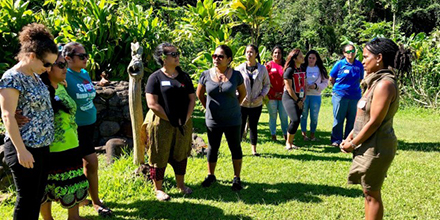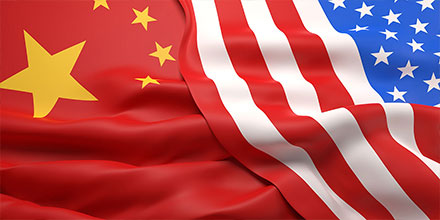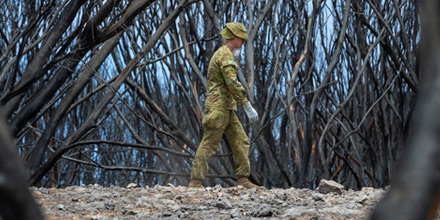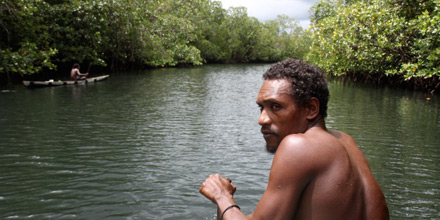[SHARE] The Future of Climate Change and Peace
Apr 2020 - News
Click here to read the article. While climate-related disputes can turn violent or become entrenched, they also contain powerful opportunities for community building and positive transformation. Read more... [Quotation] https://www.newsecuritybeat.org/2020/03/future-climate-change-peace/
NOTICE OF CANCELLATION/POSTPONEMENT TOKYO COLLOQUIUM 2020
Mar 2020 - News
“Economic Warfare and Conflict:Challenges to Peace and Stability in Northeast Asia” The Director and the Board of the Toda Peace Institute have made the difficult decision to postpone this year’s Tokyo Colloquium “Economic Warfare and Conflict: Challenges to Peace and Stability in Northeast Asia” which was due to be held on 6 March. This decision has been taken because of the coronavirus (covid-19) outbreak in Wuhan, China, and the Japanese government’s preparations for what they see as the inevitable spread of the virus to Japan. Many Japanese organisations are limiting or cancelling events that involve large gatherings of people, and the Toda Peace Institute’s strong recommendation, based on the decisions being made by other organisations, is to reschedule the event for a later date. While the Director and Board deeply regret making this decision, they are confident that a new date later in 2020 can be found for the event which has already attracted many registrations. Thank you for your support and we look forward to advising you when a new date has been decided.
International Workshop: A Peace Research Agenda for the 21st Century
Feb 2020 - News
What is the future agenda for peace research in the 2020s? Does peace research still have a distinct identity? What are the norms and values that peace research institutes espouse and can they influence practice in the face of the global challenges we face? A meeting of representatives of 22 of the world’s major peace research institutes, which was convened by the Toda Peace Institute in Tokyo from 6-8 December 2019, addressed these questions. Background papers written by Kevin Avruch (S-CAR, George Mason University), Keith Krause (The Graduate Institute, Geneva) and Herbert Wulf (BICC) identified the key themes for the workshop: Does the field have a centre, and if so, what is it? Has peace research become too close to policy-makers, losing its critical and normative edge? Is it too wedded to a theory of change in which top-down policymakers are expected to take up findings drawn from aggregated, decontextualised quantitative analyses? Is the field to be conceived as research for peace or research about peace? If the latter, is the conceptualisation of peace encapsulated in the idea of ‘positive peace’ still persuasive? Do peace researchers agree on what they mean by peace? Do practitioners engaged in peacebuilding share the same understanding of the field as researchers? If not, how is it possible to overcome the research-practice gap? The meeting mapped out a new agenda for peace research, based on the main challenges which face the field. These include (1) climate change (2) populism, nationalism, authoritarianism and threats from social media and (3) new emerging technologies with security implications, including cyber, AI and autonomous weapons. The workshop identified the potential for collaborative partnerships between the peace research institutes in these areas. It also identified new research directions on gender and violence and in arms control. The workshop explored strategies for better integrating research and practice, and outlined elements of a Code of Conduct for Peace Research institutes. To read the full report, please click here.
[SHARE] Bush fires crisis shows Australia needs a strategic response to Climate Change
Feb 2020 - News
Click here to read the article. The bush fire crisis may be the moment that opens genuine but critically honest policy debate on climate change in Australia, including for the Department of Defence. For ideas on what its response might look like, Michael Thomas, Senior Fellow at the Center for Climate and Security says that the ADF could do worse than turn to its Kiwi partner. Read more... [Quotation] https://climateandsecurity.org/2020/01/29/bushfire-crisis-shows-australia-needs-a-strategic-response-to-climate-change/
Toda Policy Briefs picked up by Washington DC's Wilson Center
Feb 2020 - News
Toda policy briefs on Climate Change have reached new audiences as posts on the New Security Beat blog. The blog is part of the Wilson Center's Environmental Change and Security Program. Links to the blog posts, which are condensed versions of the policy briefs written by Volker Boege, Ursula Rakova, Kate Higgins and Josiah Maesua, can be found below: https://www.newsecuritybeat.org/2019/10/avoid-conflict-responses-climate-change-oceania-heed-customary-actors-institutions/ https://www.newsecuritybeat.org/2020/01/community-input-improves-climate-change-induced-resettlement-effort/ https://www.newsecuritybeat.org/2019/11/climate-change-conflict-peacebuilding-solomon-island-communities/




